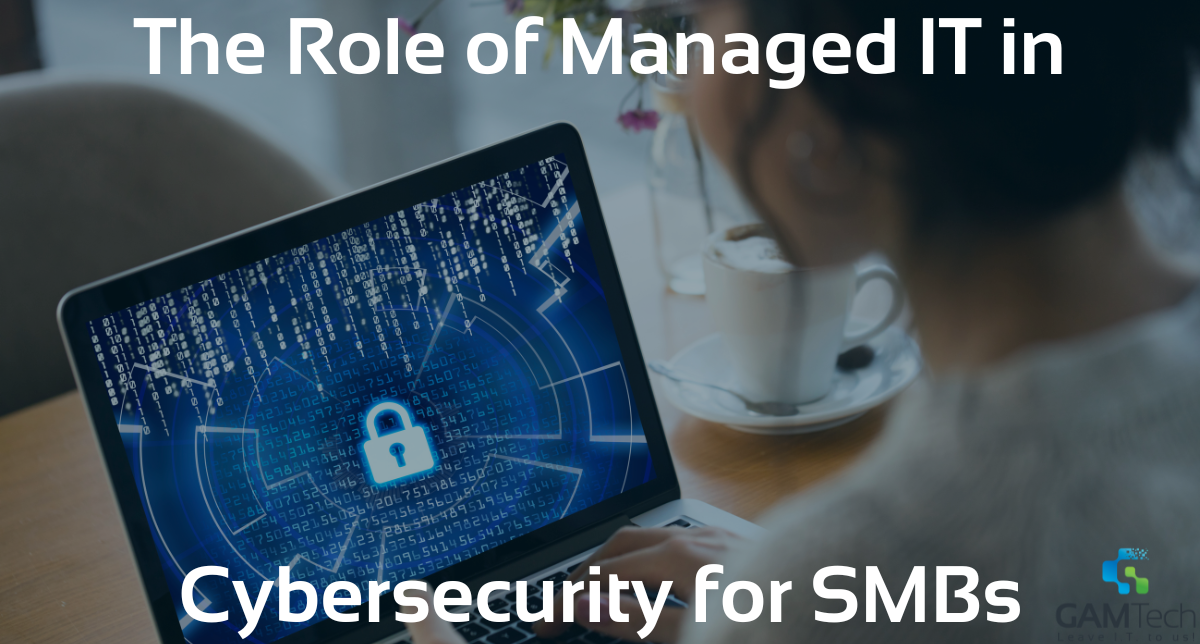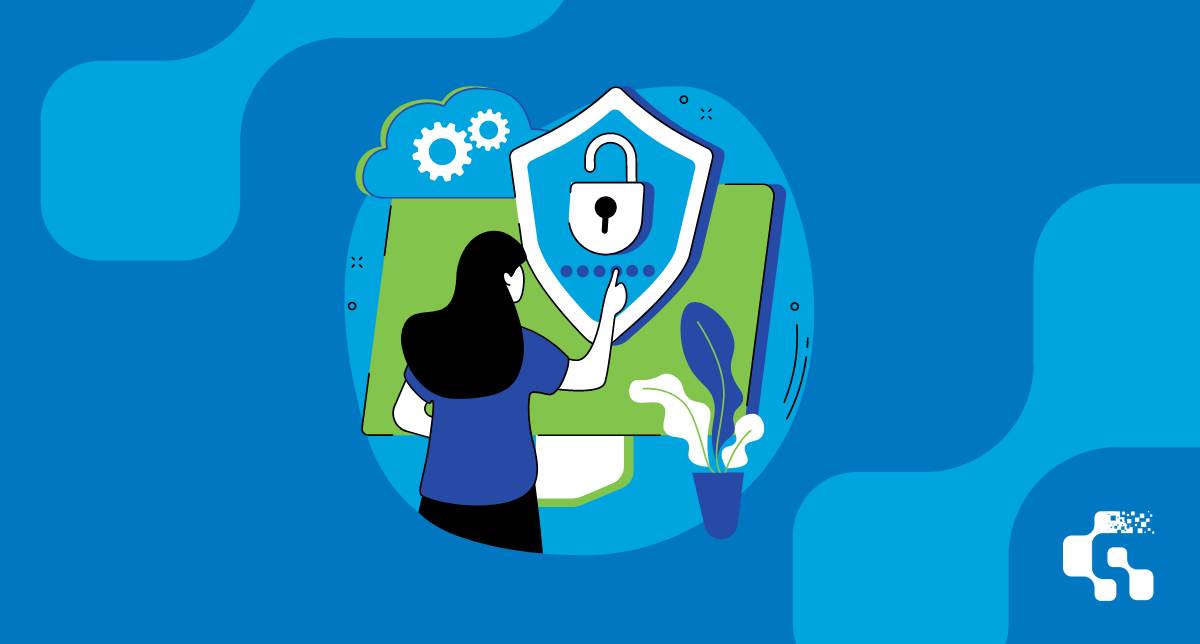9 Tips to Speed Up Your Computer
A slow computer can kill productivity and cause endless frustration for employees and business owners. The good news is that with a few simple...
4 min read
 Adrian Ghira
:
Updated on November 13, 2025
Adrian Ghira
:
Updated on November 13, 2025

In today's digitally-driven landscape, small and medium-sized businesses (SMBs) are increasingly becoming prime targets for cyber threats. Despite their size, SMBs often lack the resources and expertise to combat these evolving cyber risks effectively. This is where Managed IT Services step in as indispensable allies, offering a comprehensive suite of cybersecurity solutions tailored to the specific needs and constraints of SMBs.
Cyber threats targeting sMBs have grown increasingly sophisticated and diverse, posing significant challenges to their digital security.
1. Phishing Attacks: Phishing remains one of the most prevalent and insidious threats faced by SMBs. Cybercriminals use deceptive emails, messages, or websites to trick employees into divulging sensitive information such as login credentials or financial data. These attacks can result in unauthorized access to company systems , identity theft, of financial fraud.
2. Ransomware: Ransomware attacks involve malicious software that encrypts the victim's files or entire systems, rendering them inaccessible until a ransom is paid. SMBs are often targeted because of their perceived vulnerability and reliance on critical data. The financial and operational impact of ransomware attacks can be devastating, with some businesses facing the choice between paying the ransom or risking permeant data loss.
3. Data Breaches: Data breaches involve unauthorized access to sensitive information, such as customer records or intellectual property. SMBs are attractive targets for cybercriminals seeking valuable data that can be sold on the dark web or exploited for fraudulent purposes. Data breaches not only undermine customer trust but also expose businesses to regulatory fines and legal liabilities.
4. Insider Threats: Insider threats, whether intentional or unintentional, pose a significant risk to SMBs' cybersecurity. Employees with access to sensitive data may inadvertently disclose information or fall victim to social engineering tactics. In some cases, disgruntled employees or malicious insiders may deliberately sabotage systems or steal confidential information for personal gain or vendetta.
While traditional cybersecurity measures such as antivirus software and firewalls have been staples in SMBs' defence arsenals, they have notable limitations in addressing modern cyber threats effectively:
1. Signature-Based Detection: Antivirus software relies on signature-based detection to identify known malware variants. However, this approach is ineffective against zero-day threats or polymorphic malware that can change its signature to evade detection.
2. Perimeter-Based Protection: Firewalls primarily focus on securing the network perimeter, leaving endpoints and internal systems vulnerable to advanced attacks. With the rise of remote work and cloud-based services, the traditional network perimeter has become increasingly porous, necessitating a more holistic approach to cybersecurity.
3. Resource Constraints: SMBs often operate with limited IT resources and budget constraints, making it challenging to deploy and maintain robust cybersecurity infrastructure. Without dedicated IT staff to monitor and update security measures continuously, SMBs are susceptible to emerging threats and vulnerabilities.
4. Lack of Security Awareness: Employees play a critical role in safeguarding against cyber threats, yet many SMBs lack comprehensive cybersecurity awareness training programs. Without proper training, employees may inadvertently fall victim to phishing scams or unknowingly engage in risky behaviour that compromises security.
Managed IT Services offer a proactive and multi-layered approach to cybersecurity, empowering SMBs to defend against a wide array of cyber threats effectively. Here's how Managed IT plays a pivotal role in enhancing cybersecurity for SMBs:
1. 24/7 Monitoring & Threat Detection: Managed IT providers deploy advanced monitoring tools and technologies to keep a constant eye on the SMBs' networks, endpoints, and systems. By leveraging real-time threat intelligence and behavioural analytics, they can swiftly identify and mitigate potential security breaches before they escalate.
2. Risk Assessment & Vulnerability Management: Managed IT Services providers conduct comprehensive risk assessments and vulnerability scans to identify weaknesses in the SMBs' IT infrastructure. Based on these assessments, they develop tailored security strategies and implement proactive measures to address vulnerabilities, minimizing the risk of exploitation by cyber attackers.
3. Security Patch Management: Regular patching of software and firmware is critical to closing security gaps and preventing cyber intrusions. Managed IT providers ensure timely patch management across all devices and applications within the SMBs' environment, reducing the likelihood of successful attacks exploiting known vulnerabilities.
4. Employee Training & Awareness: Human error remains one of the primary causes of security breaches in SMBs. Managed IT services offer cybersecurity awareness training programs to educate employees about common cyber threats, phishing scams, and best practices for safeguarding sensitive information. By fostering a culture of security awareness, SMBs can significantly reduce the risk of insider threats and inadvertent data breaches.
5. Incident Response & Recovery: Despite robust preventive measures, security incidents may still occur. Managed IT services equip SMBs with robust incident response plans and disaster recovery solutions to minimize the impact of cyberattacks. From rapid incident detection and containment to data restoration and forensic analysis, Managed IT providers ensure swift and effective response to security incidents, helping SMBs mitigate losses and resume normal operations promptly.
6. Compliance & Regulatory Support: Many SMBs operate in industries subject to stringent regulatory requirements regarding data protection and privacy. Managed IT services assist SMBs in achieving compliance with relevant regulations such as GDPR, HIPAA, or PCI DSS by implementing appropriate security controls, conducting regular audits, and ensuring adherence to legal mandates.
In the face of escalating cyber threats, small and medium-sized businesses (SMBs) are increasingly vulnerable, lacking the resources and expertise to defend against sophisticated attacks. Managed IT services emerge as indispensable allies, offering tailored cybersecurity solutions to mitigate risks effectively. From continuous threat monitoring to comprehensive risk assessment, Managed IT providers empower SMBs with proactive defence measures. By embracing Managed IT, SMBs can navigate the complex cybersecurity landscape with confidence, focusing on business growth and innovation while safeguarding their digital assets against evolving threats.
Take the proactive step towards safeguarding your SMB's digital assets by partnering with GAM Tech today. Our expert team specializes in providing comprehensive cybersecurity and managed IT solutions tailored to the specific needs of small and medium-sized businesses. From round-the-clock monitoring to robust incident response, GAM Tech offers the expertise and support necessary to fortify your defenses against evolving cyber threats. Don't wait until it's too late – contact us now to learn how GAM Tech can help protect your business from cyber risks, allowing you to focus on what matters most: driving growth and innovation. Reach out to us today and take the first step towards a more secure future for your SMB.

A slow computer can kill productivity and cause endless frustration for employees and business owners. The good news is that with a few simple...

Discover how partnering with a reliable IT support provider in Toronto can enhance your network security and keep your business protected against...

In a world more interconnected than ever, the importance of safety when navigating online spaces cannot be understated. Our digital lives — whether...